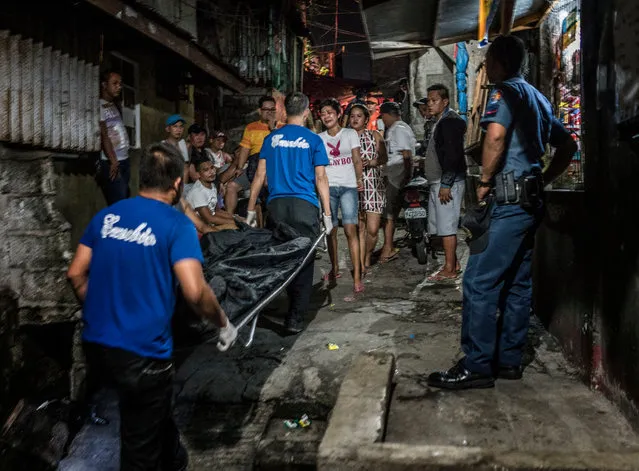
Since Rodrigo Duterte became president last year, his brutal campaign against drugs has claimed thousands of lives. Human rights groups say he is guilty of crimes against humanity, yet that is scant comfort to those mourning loved ones. Here: Ginnalyn Soriano, 21, looks on as the body of her elder brother, Julius, 24, is carried away following his execution. His body showed signs that his hands had been bound before he was shot during a police operation in Caloocan, in the Metro Manila area, as part of the war on drugs. (Photo by James Whitlow Delano/Funded by the Pulitzer Center on Crisis Reporting/The Guardian)
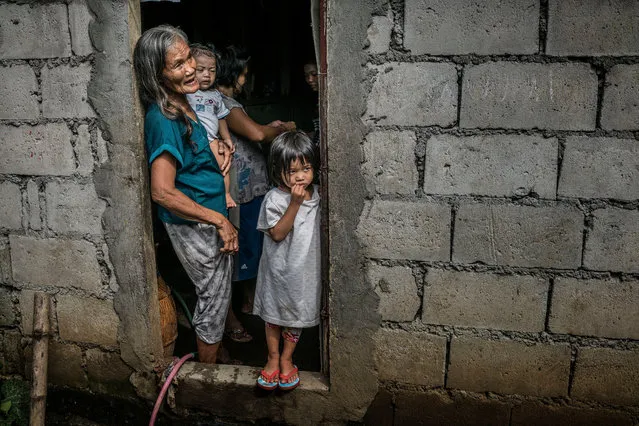
Remy Fernandez, 84, holds her grandchild, RJ, in the front door of her cinder block house, built beside a huge rubbish dump in Payatas, in Metro Manila. She is raising seven grandchildren because her son, Constantino de Juan, a drug user, was killed by masked men. The mother of the children is in prison on drugs charges. RJ was born in prison. Masked assassins entered the house through this front door and shot her son. Police deny claims by rights groups that the vigilantes who carry out many such killings are paid by them. (Photo by James Whitlow Delano/Funded by the Pulitzer Center on Crisis Reporting/The Guardian)
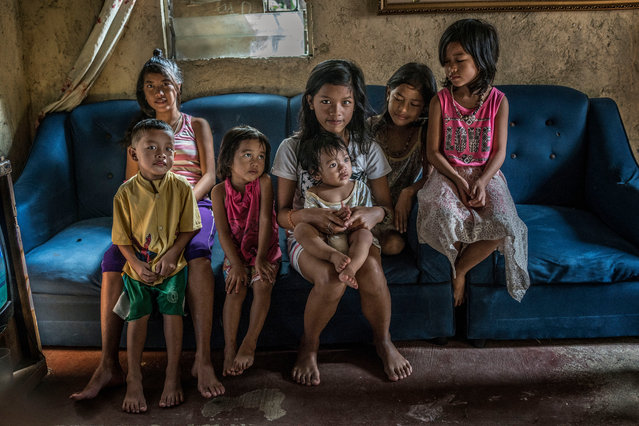
Constantino de Juan’s seven children sit on a sofa that still bears the bullet hole from their father’s shooting. Juan was preparing a spaghetti dinner on his daughter’s birthday when he was killed. (Photo by James Whitlow Delano/Funded by the Pulitzer Center on Crisis Reporting/The Guardian)
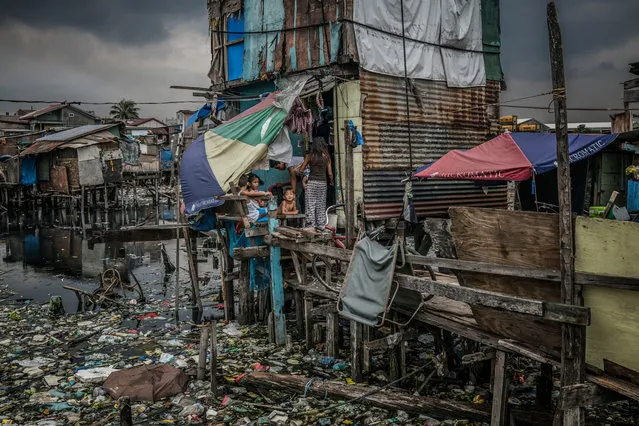
John “Toto” Dela Cruz, 16, was another victim of the war on drugs. Masked assassins pulled him out of the house in Navotas, in Metro Manila, that he shared with his 15-year-old partner, Jasmin Dorana, before shooting him four times in the head and chest on this front porch. (Photo by James Whitlow Delano/Funded by the Pulitzer Center on Crisis Reporting/The Guardian)
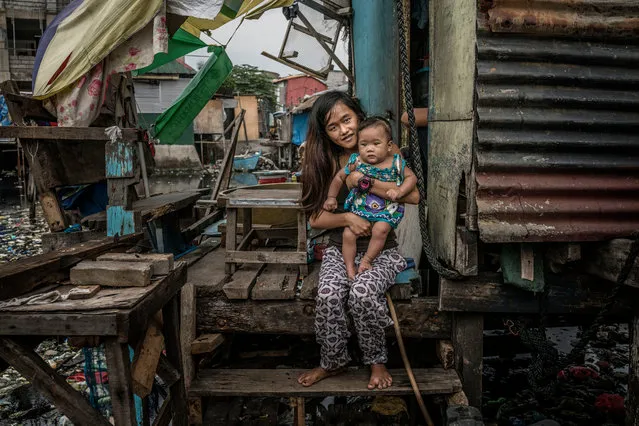
Dorana holds her baby, Hazel, who was born just a month before Dela Cruz was killed. (Photo by James Whitlow Delano/Funded by the Pulitzer Center on Crisis Reporting/The Guardian)
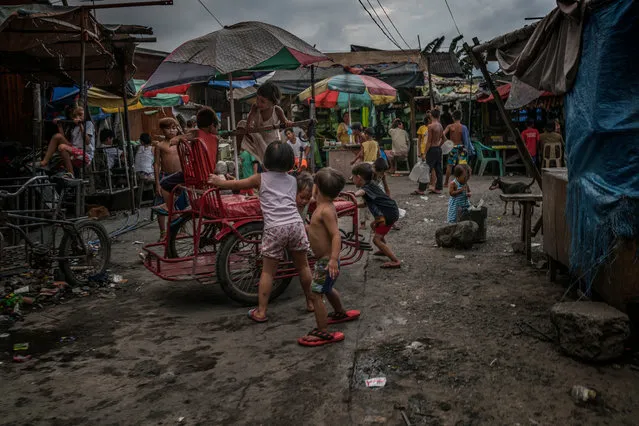
More than a fifth of the population in the Philippines lives below the poverty line. The strict Catholic country also has one of the highest birth rates in south-east Asia. More than 65% of women don’t use a modern form of contraceptive. In the shanty towns around Manila, poverty is ingrained. (Photo by James Whitlow Delano/Funded by the Pulitzer Center on Crisis Reporting/The Guardian)
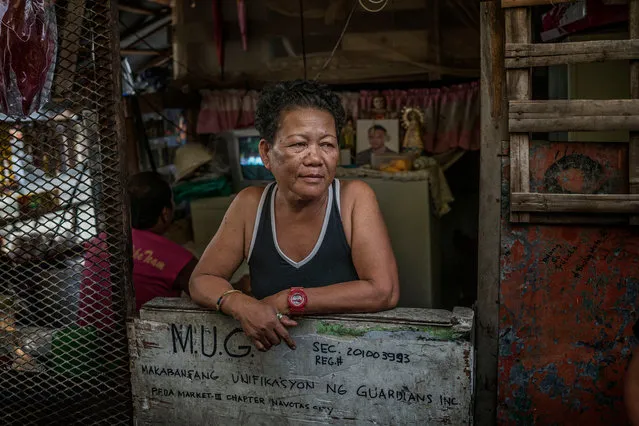
Rosita Opiasa, 59, in her home in Navotas’s Market 3 shanty town. Her son, Jayson Rivera, 32, was killed in the drugs war. She still supports Duterte, which is rare in Market 3. Rivera’s photograph can be seen in the background. Opiasa runs this corner shop, where she sells single cigarettes or various small bottles of shampoo and detergent because her customers can’t afford larger sizes. (Photo by James Whitlow Delano/Funded by the Pulitzer Center on Crisis Reporting/The Guardian)
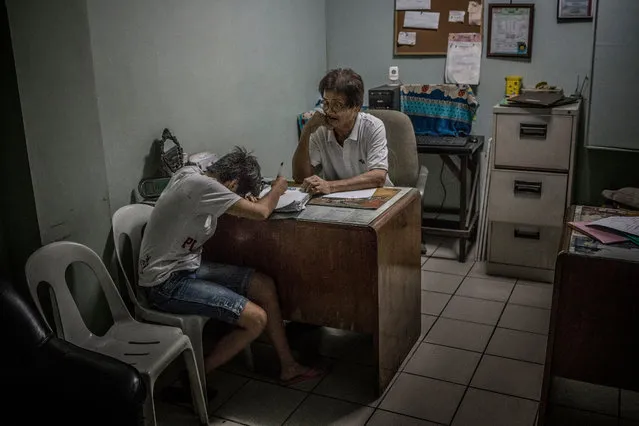
Ginnalyn Soriano breaks down in tears in front of Orly Fernandez, operations manager at Eusebio funeral home, as she fills out the required paperwork following the death of her brother Julius. (Photo by James Whitlow Delano/Funded by the Pulitzer Center on Crisis Reporting/The Guardian)
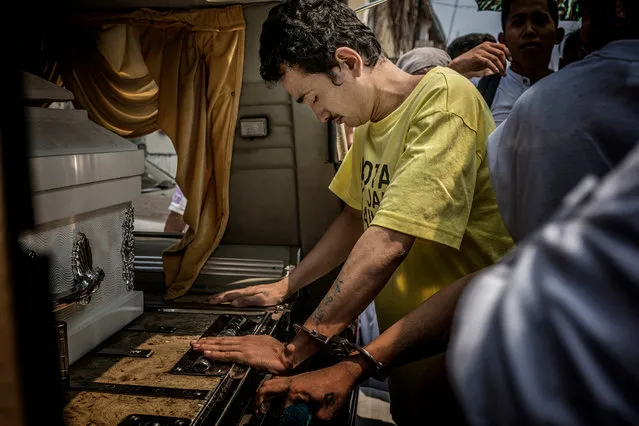
Roland Obletes, 30, and his brother Mario were allowed out of prison to say farewell to another brother, Junmar Abletes, who was killed by unidentified men wearing black masks and hoods. Both men are serving time for drugs-related offences. (Photo by James Whitlow Delano/Funded by the Pulitzer Center on Crisis Reporting/The Guardian)
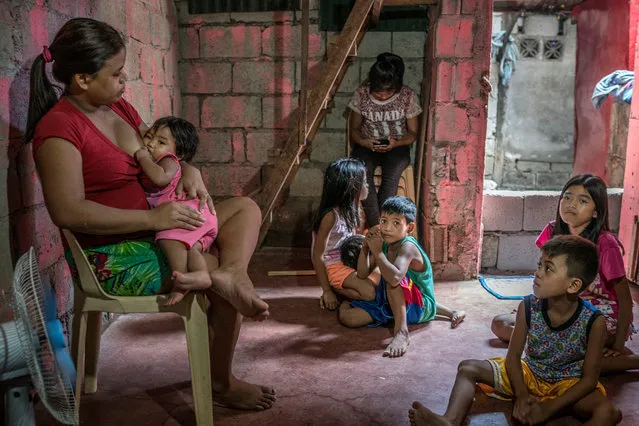
Roda, 29, has been left to look after six children, after her husband, Crisanto, a rubbish picker at the Payatas dump, was killed. Roda cannot work because she has an ulcerous infection on her thigh and also needs to look after the children. Some of the older ones are sent out to sell fried banana and other food on the street to bring in a little money. (Photo by James Whitlow Delano/Funded by the Pulitzer Center on Crisis Reporting/The Guardian)
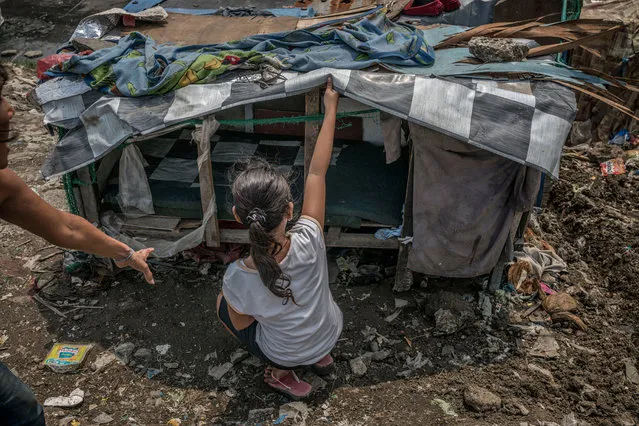
Sara used to live in a canvas hut but now sleeps in this old chicken coop in Navotas. She used to live with her husband, Kulot, in Market 3 shanty town, but he was killed because he was a known user of methamphetamine. Sara is destitute, so Kulot’s embalmed body lay in a morgue for more than 25 days before it was finally interred in a mass grave. (Photo by James Whitlow Delano/Funded by the Pulitzer Center on Crisis Reporting/The Guardian)
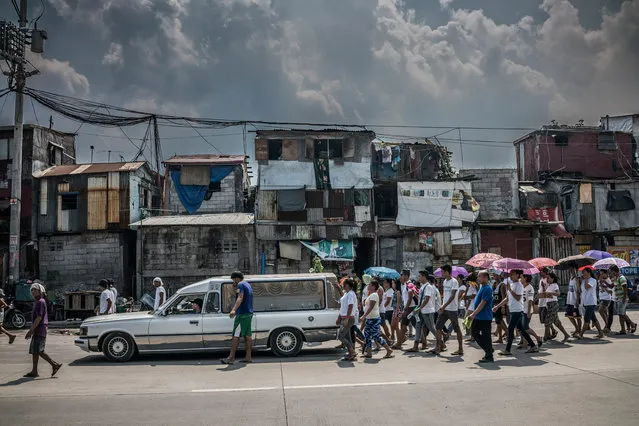
Friends and family of 27-year-old Junmar Abletes follow the hearse carrying his body to the Navotas Catholic cemetery. Abletes lived on the island of Samar, more than 800km away, but was killed in Market 3 when he returned for a family visit. Funeral processions like this for young men and women have become common in the past year. (Photo by James Whitlow Delano/Funded by the Pulitzer Center on Crisis Reporting/The Guardian)
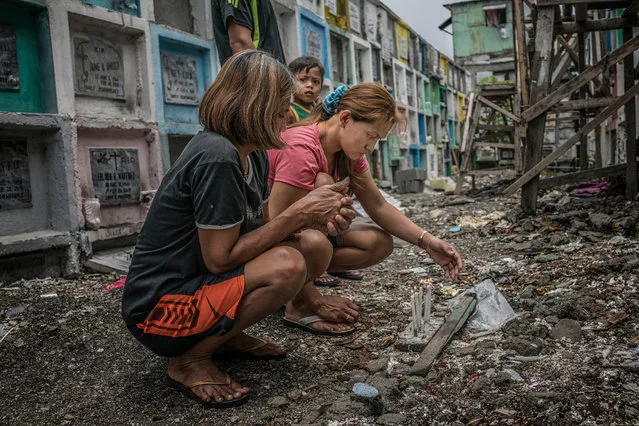
Mary Grace Llimit, in the pink shirt, at Novatas Catholic cemetery. Her 16-year-old daughter, Liezel, was killed alongside her boyfriend. Liezel’s autopsy showed she was three months pregnant. Mary Grace was working in Singapore when she received the news of her daughter’s death. Liezel was shot eight times, four to the head, leaving her unrecognisable, says her mother. With Mary Grace are her mother, Appolinaria Salita, and her youngest son, Noel, who is three years old. (Photo by James Whitlow Delano/Funded by the Pulitzer Center on Crisis Reporting/The Guardian)
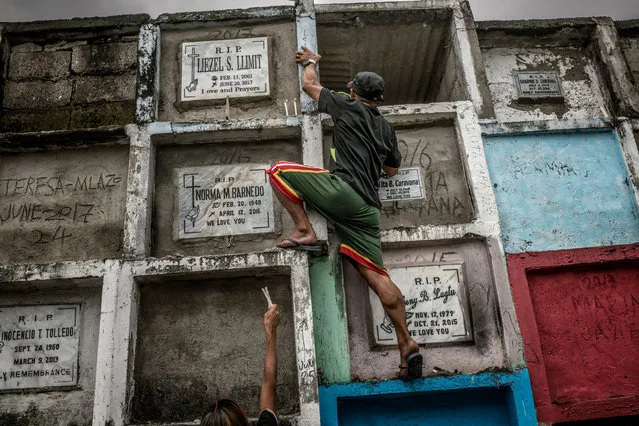
Liezel’s father, Cerlon Llimit, climbs up to her tomb at the cemetery to light candles for his daughter. (Photo by James Whitlow Delano/Funded by the Pulitzer Center on Crisis Reporting/The Guardian)
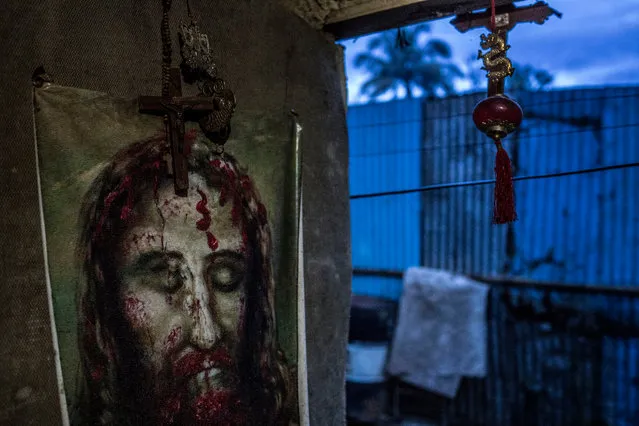
Religious icons in Remy Fernandez’s house, which are common in this deeply Catholic country. The archbishop of Manila, Cardinal Luis Antonio Tagle, recently denounced the killings after the death of a 17-year-old student in Caloocan sparked nationwide protests. ‘We knock on the consciences of those who kill even the helpless, especially those who cover their faces with bonnets, to stop wasting human lives,’ he said. The senate has put forward a resolution condemning the killings. (Photo by James Whitlow Delano/Funded by the Pulitzer Center on Crisis Reporting/The Guardian)
20 Sep 2017 08:28:00,
post received
0 comments
